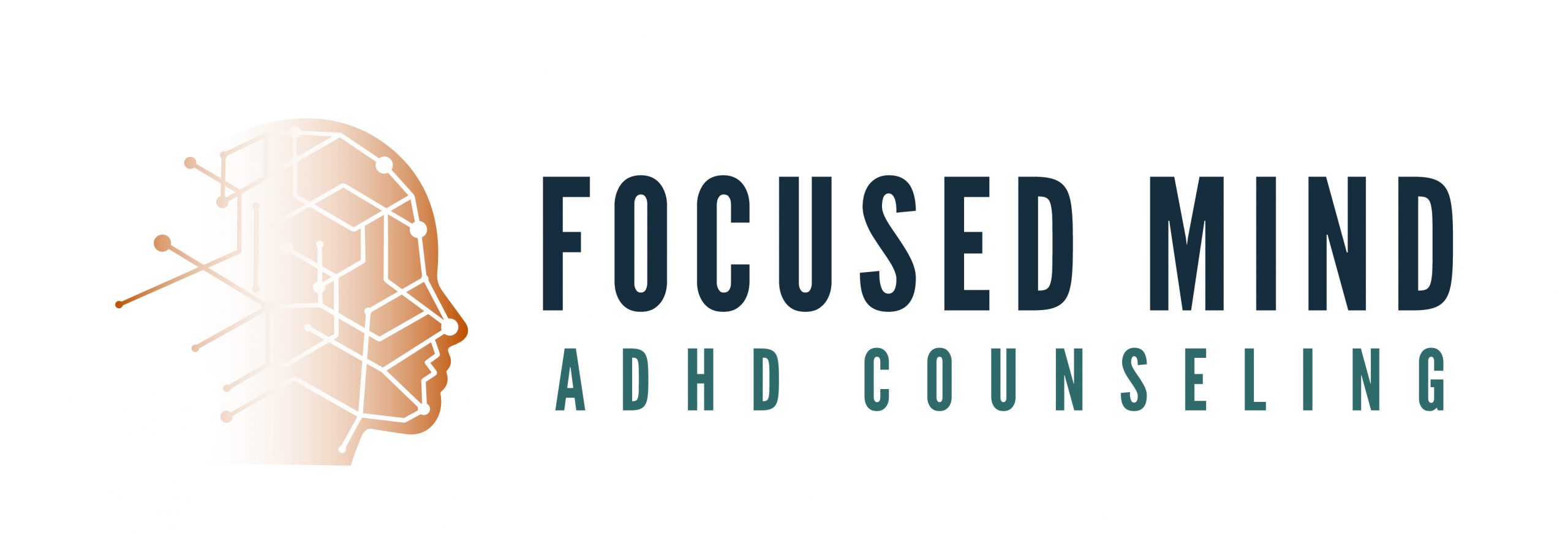
Picture This: you’re lying in bed, trying to fall asleep, but your brain won’t turn off. Maybe you’re replaying a conversation from earlier, wondering if you sounded awkward. Or you’re cycling through tomorrow’s to-do list, worried there won’t be enough time. And then there’s that email you’ve been dreading—it pops back into your mind the moment your head hits the pillow. You know you should be asleep by now, but your mind refuses to log off.
ADHD and overthinking go hand in hand, it often feels like the default setting. The ADHD brain tends to process emotions and thoughts in loops (a process called ADHD looping), which can leave you exhausted, overwhelmed, and stuck in endless rabbit holes. In this post, we’ll explore why overthinking shows up, what it costs, and how you can find some peace of mind.
Why You Can’t Log Off
The “Mental Tabs” Never Close
You probably know the feeling of having 20 tabs open in your brain. Some are useful, some should’ve been closed hours ago, and one of them is playing music you can’t seem to find. That’s what it’s like living with an ADHD brain caught in overthinking mode. Even after you’ve wrapped up a project or finished a meeting, your mind keeps running in circles: “Did I sound confident enough?” “What if I dropped the ball on something important?” The loop doesn’t stop just because the workday does.
Executive Functions and Mental Boundaries
This happens because ADHD affects executive functions—the mental processes that help with organizing, prioritizing, and knowing when to shut things down (also known as self-regulation). For a neurotypical brain, mental boundaries (the ability for the mind to shift focus) may come naturally and can more easily pivot from work, home, and rest. This happens because the brain naturally shifts between ‘focus mode’—when you’re locked in on a task—and the default mode network, which takes over when your mind drifts, reflects, or wanders.” For an ADHD brain, those thought lines are not always clear, and may even seem like there’s cracks in the lines which lead the work thoughts to bleed into the home thoughts. So closing your mental laptop doesn’t mean that your mind has closed the tabs.
Rejection Sensitivity and People-Pleasing
Another factor driving overthinking is rejection sensitivity—the intense, wordless pain that comes with anticipating rejection, a common experience for many people with ADHD. This makes you especially sensitive to real or perceived criticism, often feeling deeply painful. If you’re worried that you upset someone or did not perform well enough, your brain can keep replaying and hyperanalyzing those moments as a way to “protect” you from rejection. ADHD and people-pleasing goes hand-in-hand with rejection sensitivity. It can lead you to say “yes” just to avoid disappointing others—only to find yourself overcommitted, overpromising, and overextending…while risking under-delivering.
 Reframing “Letting Go”
Reframing “Letting Go”
Overthinking doesn’t mean you’re broken. It’s actually your brain’s way of protecting you—trying to solve problems, anticipate what’s next, and keep you prepared. For people with ADHD, this often comes with a double-edge: the same wiring that makes it hard to “log off” is also what fuels creativity, innovation, and the ability to feel things deeply. Those traits, while overwhelming at times, are also what make you thoughtful, intuitive, and resilient.
“Letting go” doesn’t have to mean shutting your brain off completely or losing control. Instead, it’s about creating systems and supports that give your brain space to rest—so your strengths show up when you actually need them. Logging off isn’t about losing perfection; it’s about carving out moments of peace in an overstimulating world.
The Cost of Never Logging Off
When your brain can’t let go, you may experience:
- Burnout: Constant mental activity drains your energy and makes it harder to function in the ways you’d like to.
- Poor Sleep: Night time becomes a stressor because of those racing thoughts, leaving you even more exhausted the next day.
- Relationship Strain: Overthinking can spill into conversations with others, sometimes leaving you with little patience, quickly shutting down, or feeling overwhelmed by the intensity of your worries.
How To Actually Log Off
The goal isn’t to “stop thinking” (let’s be real—that almost never works). Instead, it’s about creating conditions that help your brain shift gears. A few tools that make a real difference:
- Transitional Activities: Build small rituals that signal to your brain it’s time to switch modes. That might mean taking a short walk after work, changing into comfy clothes, washing your face, or brewing a cup of sleepy-time tea. These little routines act like a “log off” button for your mind.
- Mindful Moments: Meditation doesn’t have to mean sitting cross-legged for an hour trying to think about nothing. Even 5 minutes of guided breathing, light stretching, or progressive muscle relaxation can calm your nervous system and give your brain the chance to slow down.
- Limit Re-Entry Distractions: If your mind loves reopening “old tabs,” make it harder for that to Log out of your laptop, set your phone to Do Not Disturb, or go retro with an actual alarm clock so you can keep your phone in another room at night.
Key Takeaways
- Overthinking in those with ADHD comes from executive function challenges (made worse by rejection sensitivity), not a lack of discipline.
- The cost of never logging off shows up as burn out, poor sleep, and strained relationships.
- Simple, intentional systems (transition routines, mindfulness practices, and limiting distractions) can help your brain actually let go.
Begin Adult ADHD Treatment in Columbus, Ohio
Looking for more individualized support? You don’t have to live life overthinking everything. ADHD-focused therapy can help you find mental calm. Our counseling practice in Columbus, Ohio has caring therapists who specialize in ADHD testing and ADHD treatment. To start your counseling journey with Focused Mind ADHD Counseling, follow these simple steps:
- Fill out the contact form to schedule a free 15-minute phone
- Meet with one of our caring therapists.
- Stop overthinking. Start logging off.
Other ADHD Services Offered at Focused Mind ADHD Counseling
Adult ADHD treatment is not the only service we offer at our Columbus, OH counseling practice. At Focused Mind ADHD Counseling, we offer a variety of mental health services, including ADHD testing. As an adult with ADHD, we know you may also benefit from anxiety treatment for ADHD, counseling for men with ADHD, couples therapy for ADHD, or depression counseling for ADHD. You can also view our blog for more resources and helpful info.
Written By:
Suzanne Case, LSW



